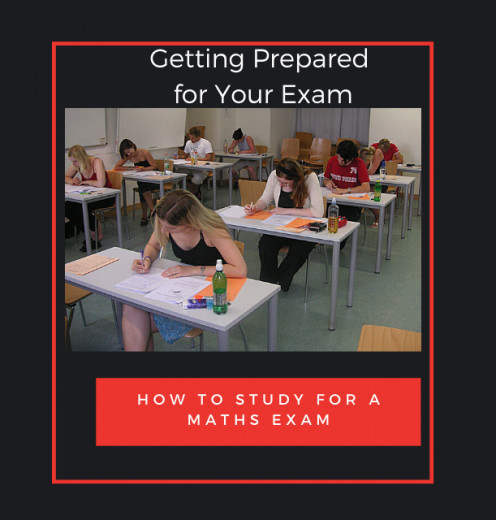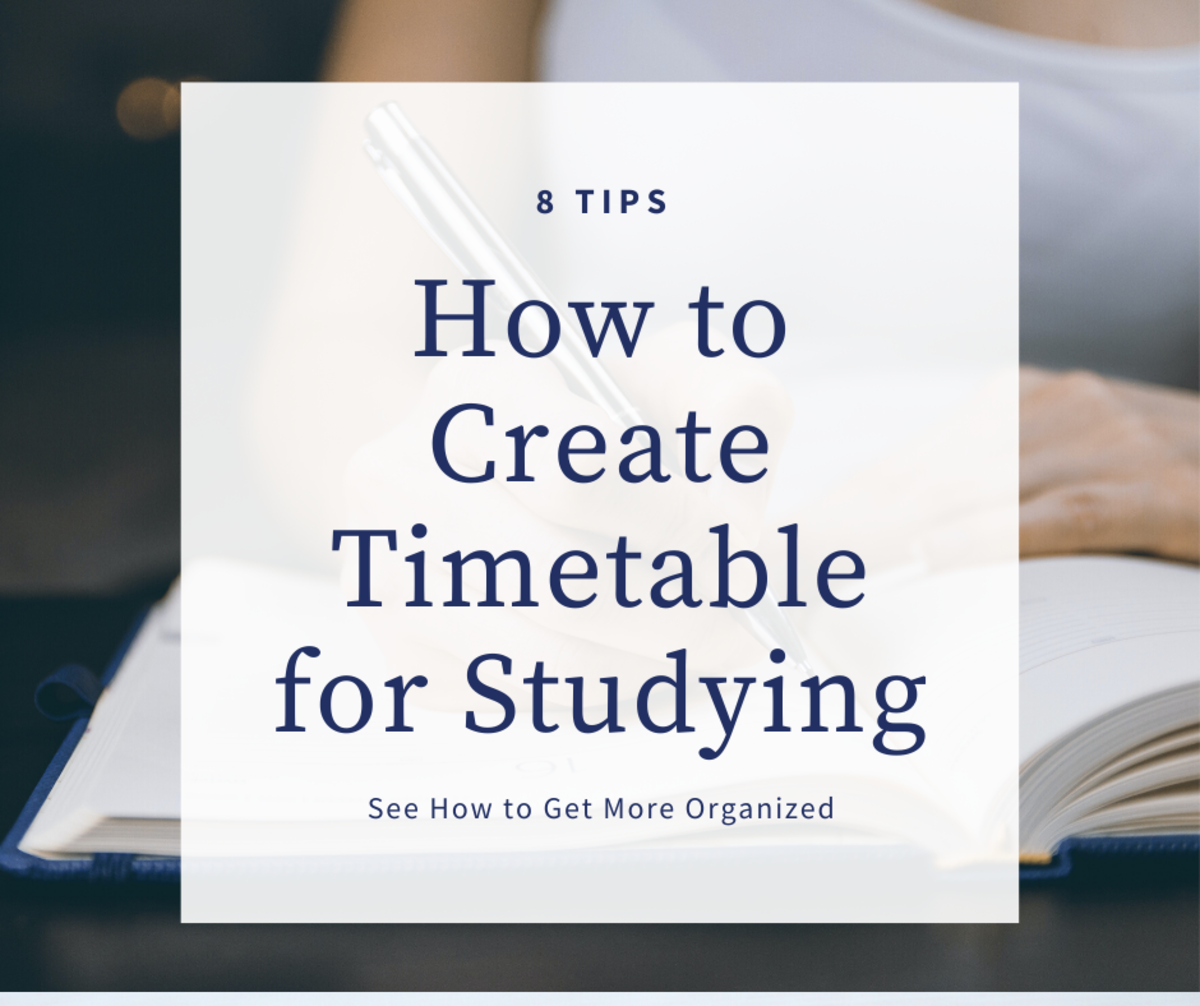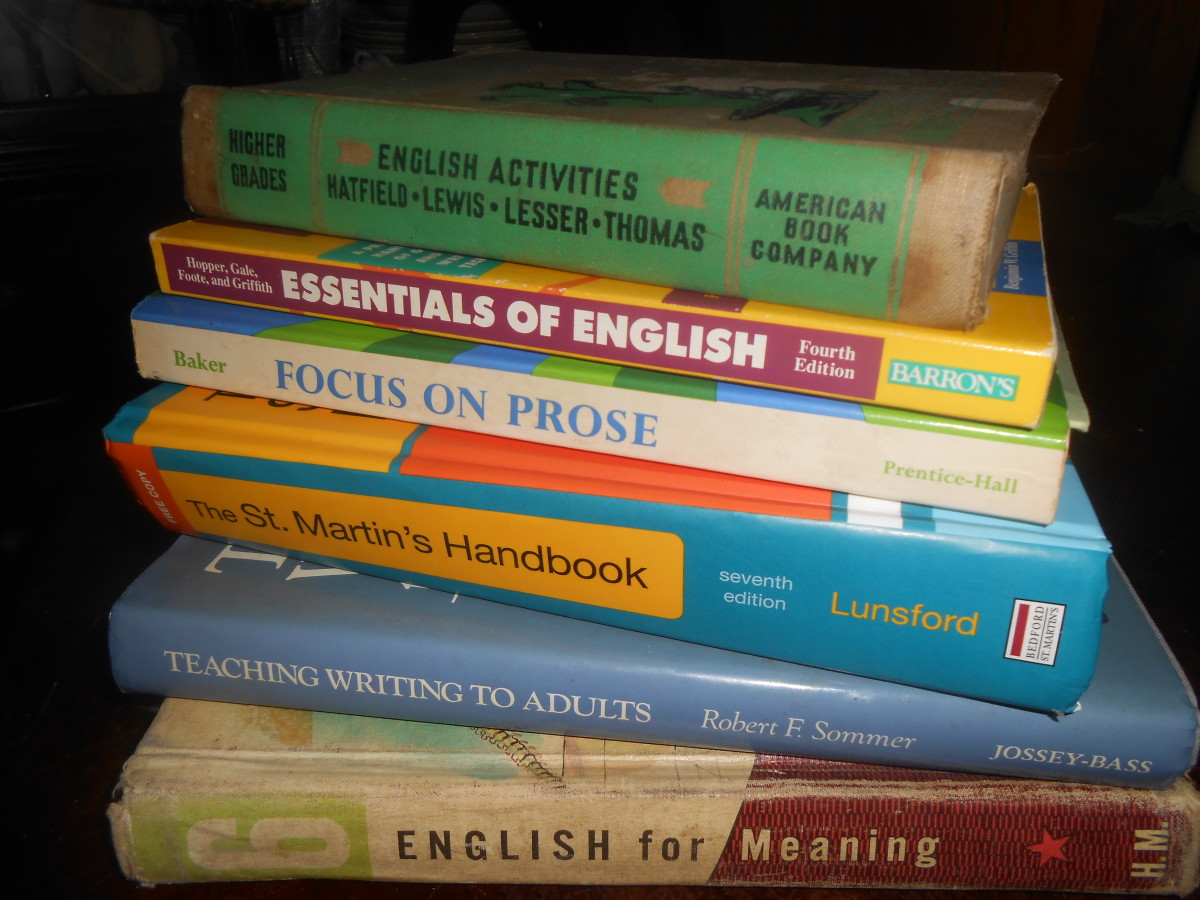Tips on How to Get Good Grades in Tests and College Assignments

There is an expectation from your lecturer when you attend college on how you should present your course assignments.
At the start of your semester, you college lecturer will give you a course outline at that highlights the areas that you will need to focus on when it comes to studying for your exams.
If you do not ready or study from this syllabus then you not be prepared for your semester ahead and you won't be knowledgeable in what it is you need to study for your exam.
Students will always compete against each other in college trying to be the best in the class. Competition can be intense to get good grades.
6 Ways to Get Ahead in Your Course Before the Start of College
- Get the course reading schedule prior to starting your course.
- Get the course textbook schedule.
- Read any textbooks you can, prior to starting your course.
- Read additional textbooks in the area you are studying if you have time.
- Class tests can be a part of your grade in college so continuous studying is vital.
- In your spare time read and follow blogs in your field of study, read broadsheet newspapers and non fiction books, along with watching television programs related to the area you are studying in.
How to Study Theory
From the very start of your first day, you need to create a study plan and start studying as soon as you possible can.
Studying theory can be extremely difficult for some people to learn. If your module has lots of theory in it, then the harder it will be for you to learn it all in a short period of time. You can read college textbooks to find more information on the theory you need to know.
Once you know how to take notes from a college textbook, then you can start studying the information.
Learning Method for Theory
- The more often you read something the better you are at retaining it. Read small amounts of information frequently over a long period of time.
- When studying your notes have an index that summarizes the key points you need to know for this topic. Learn this off first. Then learn the key points relating to each point. Draw a mind map to help you clarify each issue even more.
- Test yourself after each study session by seeing if you can answer the issues in the index at the beginning of your study notes. Write out the key points from each issue.
- The more you write out something the more chance you have of remembering it. This method is time consuming but it helps you retain information in the long run.
- Write out your can your class notes as soon as you can to help keep it fresh in your mind.
- Don't leave everything till the last minute.
Did/do you enjoy college life?

How to Study for a Maths Exam
In a maths exam you need to understand the question before you can answer it. You need to learn to pick out the relevant information in it.
Maths question are written in two ways.
1. You're given all the relevant pieces of information and you need to put them into a formula.
2. You're given pieces of information and you need to find the extra piece of information to calculate the final answer.
Example: If you were doing an accounting exam and you are told in one question that the revenue is $150,000. In another question you weren't told what the revenue was but you were told that the units sold were 15,000 at a sales price of $15.00. You multiply $15.00 by 15,000 to get the total revenue. .
Learn the different steps that are attached to each part.
Once you know how to pick out the relevant pieces of data to help complete step one in the maths question, you can move onto step two and do the exact same thing. Once you know step one and step two you can move on to step three and so on.
Breaking down maths questions makes them easier to understand.
How College Course Work is Graded
The method used for grading in college will vary among institutes. You won't know what they are using unless you know someone already attending the course you plan to study.
These are three different methods that can be used to examined students when in college:
- 1. Formal test at the end of the semester term
- 2 Individual class assignments as well as group assignments
- 3. Two parts exam. A class assignment with an exam at the end of the semester
Each person has different strengths when it comes to assignments. Some students love them and some students hate them. Other students will enjoy studying for end of term exams.
Even if you fall down on one area, you need to try your hardest to keep your grades up. You need to try to get similar grades across all classes to ensure that your average doesn't fall down.
Popcorn, m&m, jellybeans, raisins, dried apricot and banans are great snacks to eat when you are studying.
Methods Used in College to Grade Your Work
1. Year End Exam
An the end of the semester you night have just one test to test your performance. This means you have the whole semester to focus on your studying. Your focus here is not divided throughout the year trying to study for a class test and completing class assignments. You should try to write up your notes at the end of each day. Leaving it till a later date means you will have a lot more to do at a later period.
Each week your main focus is:
- attending class
- staying on top of your required reading
- taking notes
- writing up your study notes
2. Class Assignment
Some courses have part of their grade relegated to a class assignment. You need to start researching for these as soon as you get the assignment details. The sooner you start your research, the quicker you can start on assembling the work.
If part of your grade requires you to do group work, then you will need to do the following:
- find ways to keep the group motivated to stop people getting bored
- lay out rules and expectations at the beginning of the assignment
- give everyone a task and a time frame to have it completed by
- ensure that members are aware of the consequences of not completing work on time
Ensure assignments are done a few days in advance of the due date so everyone can review the final draft to see if they are happy with it. If any edits are required on this final draft, you have a few days to amend them.
3. Class Assignment and end of Semester Test
Some courses might have a test and a class assignment. This type of grading splits your focus over two areas. You need to be very organized and focused to ensure you don't let any area suffer.
Don't leave your studying till the very end of the semester and cram for your year-end exam the week before. Try to focus on assignments when you get then also also continue your studying at the same time. You might have to sacrifice a few study hours to research and write your assignment. Work out how to prioritize your workload accordingly.
Remember if the grade is only 5%, then don't spend four weeks doing nothing but researching and writing out the assignment. If the assignment is worth 50% then obviously you would sacrifice part of your study time to complete the assignment.
If your end year exam is worth 80%, then the majority of your time should be focused on studying for this.
When is The Best Time to Study for Exams
You need to gradually ease yourself into studying.
Things to do when you first start studying are:
- Find out if you like studying in the morning, the afternoon or night-time.
- Once you find a time that works for you, stick to this.
Some students like studying in the morning, some students in the afternoon others work best at night time. Find a schedule that works for you and put a routine in place for yourself.
Everyone peaks at different times of the day.

What do/did you most enjoyed about college?
Structuring an Essay
There are a few points to remember when writing an essay. When structuring your essay you need to have an:
- introduction ( which isn't written till the end )
- body ( which will consist of a few paragraphs of information to support what it is you are talking about )
- conclusion ( which is a summary of what your essay is about)
Tips on How to Write an Essay
Most courses will require you at some point to do an essay. Ensure that the lecturer gives you guidelines on the layout that they expect from you. Some courses have different expectations on how you should present your essay. Here are some areas you need to focus on when writing an essay.
1. Pick out the main keywords in your essay title to get clarity on what question the lecturer wants answered.
2. List key areas in your topic that the heading ties into.
3. Outline topics you would like to include in your essays.
4. Use college textbooks indexes to help you find areas that you can inckude information from into your essay.
5. The introduction should be the last thing you write. This is a summary of the areas you are writing about in your essay.
6. The conclusion of your essay will be a summary of what your essay is actually about.
7. Insert relevant quotes into your essay and ensure that you reference them all correctly.
8. Lecturers focus on quality over quantity. That doesn't mean you shoud ignore the word count and write less.
9. Plagiarism is a big no. Never directly copy work someone else did from a book or journal.
10. Each essay will have a number of drafts. Your first draft is never the one you will hand up. Usually you will have at least three drafts of an essay. Try to get someone to proof read your essay prior to you submitting it.
If you want to be successful at writing essays, read lots of books on essay writing.
How to Write an Essay Paragraph
This is a quick way on how to write a paragraph for the body part of the essay.
-
When writing your first essay paragraph, you will give an outline of what it is you are going to talk about in the essay.
-
You need to remember that when you state a fact in a paragraph of an essay that you will need to follow up this fact with a source or reference. This will support the statement you just said.
-
You follow this up with a supporting fact which is your leading statement for your next paragraph and the conclusion of your first paragraph. This helps to tie in all areas of interests in your essay together.
- This is required for each paragraph within the body part of an essay. The essay will flow better if you use this method.
This technique takes time and you need to do a number of drafts to get it just right. Read your essay a few times to see if it flows. Get a second opinion from someone else to see what they think of it.
HOw to Take Notes in Class
Note taking can be an important part of college. You might have some classes that are harder to understand, so you take notes in each of these classes. Other classes might be more practical so you don't need to write any notes.
When you end up writing out everything that is said in your class, you miss some things.
- When writing down notes in class, you need to be aware what it is that you are writing down. Is this area relevant to the topic?
- If your try to write down everything that the lecturer says, then you could miss out on other things happening in the class.
- Only write down key things that the lecturers says are important.
- You cannot listen, write and concentrate at the same time.
- Some things the lecturer says will not be relevant.
- You need to learn to listen and pick up hints that are dropped.
This is a hard skill to learn, but it is something that will last you a long time into the future.
Relevant Study Notes
Class notes should be relevant to the topic you are covering in class. If they aren't, then they are useless. If you have class handouts, write notes on this when important areas are highlighted by the lecturer in class.
Underline key areas with highlighters or colored pens. Date each of your note pages and class pages so you know what time frame they relate back to. This helps you reconcile your class notes to your study notes when you start studying.
Write out the date on the top of your class notes and class material to make it easier to relate them back to a topic you have covered at a certain time.
How to Survive College
College is challenging and it will take you time to find your footing. If the college run any workshops aimed at helping students adjust to college life, the you should attend them.
No matter what age you are the first time you attend college, you are likely to face the same issues. All you can do is take it one day at a time.
© 2014 S.P. Murphy








